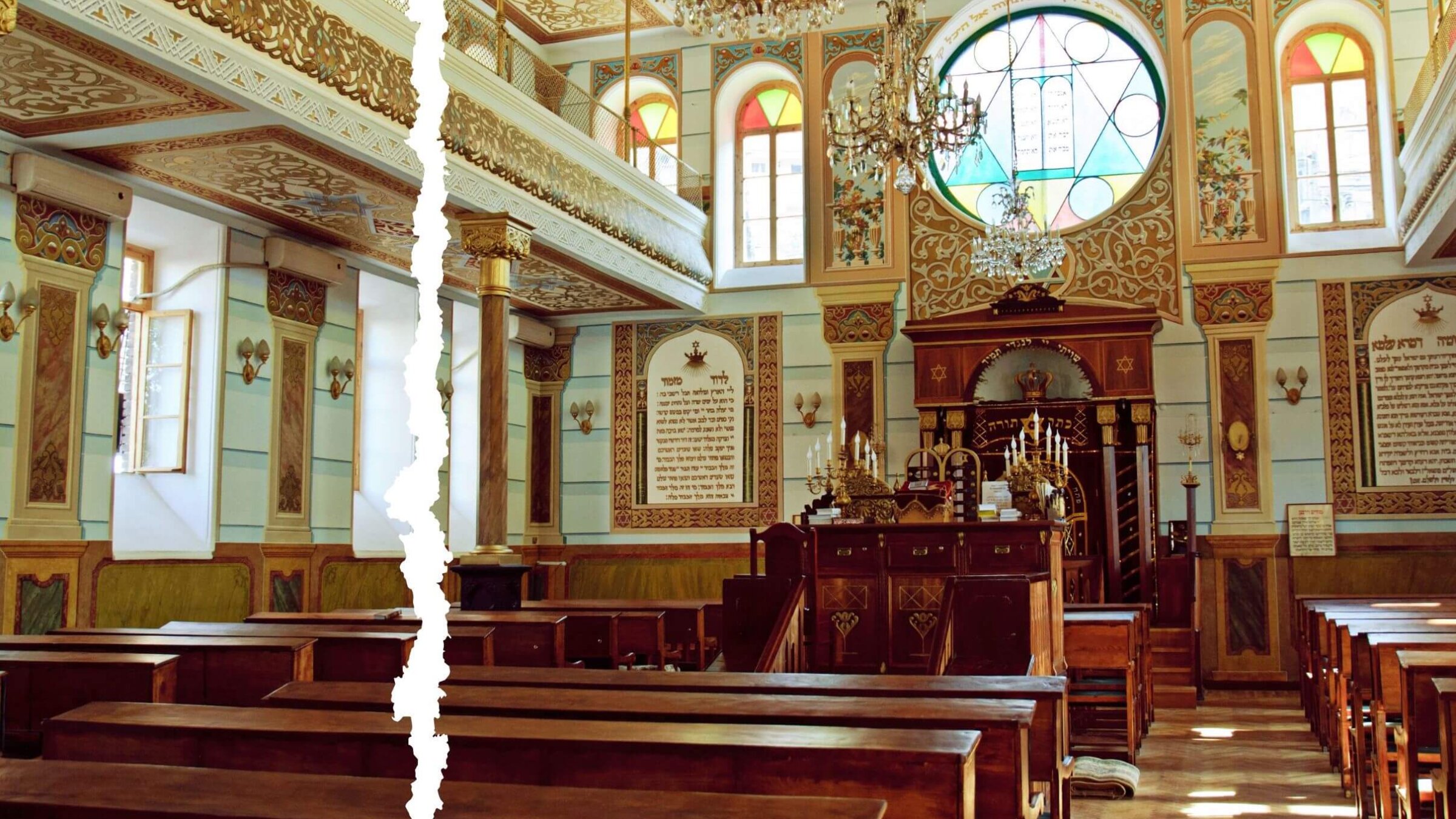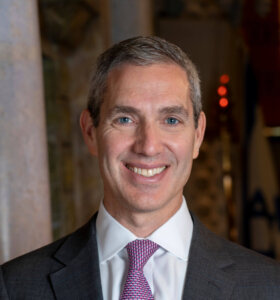I spoke out against Mamdani. Then he won. Here’s how we walk forward together.
The Jewish community has become divided. We must learn to walk together again.

Will New York City’s Jews be able to heal the rifts that have opened between us? Image by iStock by Getty Images/Roxana_ro/Canva
Zohran Mamdani will become the 111th mayor of New York City. While the electoral outcome is not what I hoped for, I wish Mayor-elect Mamdani and his administration every success in leading this city we love. As the prophet Jeremiah instructed the Jews of his time, “Seek the peace of the city … for in its peace you will find your peace.”
Our community will, as it would with any mayor, work with the Mamdani administration on matters of shared concern and common cause. We will also, as we would with any mayor, hold the Mamdani administration accountable for ensuring that New York City remains a place where Jewish life and support for Israel are protected and can thrive.
Elections are important for the leaders they produce, but also for what they show us about the values we cherish and the fault lines we contain. They reveal not only the state of our politics, but the state of our souls, forcing each of us to confront questions of who we are, what we value, and how we can live together despite our differences.
For me, personally, the fact that about a third of New York City’s Jewish voters checked the box for Mamdani is totally bewildering. I am not unaware of the bigger political trends, the shortcomings of the other candidates, or the systemic challenges our city faces; I understand why Mamdani won. But for me, his anti-Zionist rhetoric and his intent to shut down research and economic partnerships between Israel and New York — to name but a few of his promises that would negatively impact our community — not only disqualified him from receiving my vote, but were a meaningful enough concern that I chose to publicly urge Jews and their allies to vote against him as well.
And yet, it would seem that what was self-evident to me was not so self-evident to a sizeable percentage of my kinfolk. Jews who live in my city, who are members of our collective community, who don’t feel the same way as I do. Thoughtful, caring, introspective Jews. Jews wise enough to interrogate their own views. Jews who, most importantly, fall into that sacred subset of humanity called mishpachah, family.
Mayors come and go. But the Jewish people must persist, and this election has brought a fault line within our people into full relief.
The rabbis of old understood that members of the same family could participate in the same experience and emerge with two very different ideas of what had occurred. It happened to our founding first family in this past week’s Torah reading, where we read the story of the akedah, the binding of Isaac.
Abraham is called on by God to sacrifice his son Isaac on Mount Moriah. Not just once, but twice, the text says of their ascent of the mountain that the two “walked together.” The rabbis understand that repetition as deeply important, the choice of words signaling not just physical proximity, but shared understanding, purpose and faith.
By all accounts, whatever actually happened on top of that mountain was a moment both dramatic and traumatic for father and son alike. Yet as charged with emotion as the ascent and the scene atop the mountain were, it is the journey down that has elicited the most rabbinic commentary. The text describes Abraham returning to his servants, and then to Be’er Sheva.
No mention is made of Isaac. Where did he go? What happened to him? Abraham and Isaac may both have returned from the harrowing test on that mountain, but they went their separate ways and would never be the same. So betrayed was Isaac that he never spoke to his father again. The same akedah that defined Abraham as a hero of the Jewish faith was the experience that prompted Isaac to see him as unforgivable.
That divided outcome hits close to home as I reflect on the split within our New York Jewish community today. The story reminds us that trauma, while shared, can send members of the same family in opposite directions.
We need to recognize that while many of us felt compelled, after Oct. 7, to rise in defense of Israel and global Jewry, an unintended consequence has been that other Jews have chosen, like Isaac, a different route. We need a reset on what we mean when we talk about “Oct. 8” Jews. We must stop being surprised that the Isaacs of our community have found themselves more at home in the tents of others than in our own.
We need to learn to walk together again. If, as I have repeatedly claimed, ahavat yisrael — love of the Jewish people — is my North Star, then it is a principle I must uphold even and especially when it is uncomfortable to do so. It is a love that must extend to Jews whose views I neither share nor understand.
As I said a few weeks ago, when I chose to speak out against Mamdani, ahavat yisrael means not wagging fingers or rolling eyes when encountering opinions contrary to one’s own. It means refusing to demean, diminish, or shame another Jew’s viewpoint. It means spending time, as I have done on multiple occasions these past weeks, speaking with people who have shared why my remarks served to push them further from — not closer to — the Jewish fold.
It means calling out, with equal ferocity, the threats to the Jewish people as they appear on the Mamdani left and on the Nick Fuentes and Tucker Carlson right. And yes, it means a willingness to publicly apologize — not for sharing my convictions, on which I stand firm, but for the times I have failed to uphold the spirit of dialogue and freedom of conscience and expression that I have spent my adult life championing, and believe must be defended today more than ever.
It means modeling these values publicly and communally by engaging with peer rabbinic colleagues who see things differently than I do for respectful, substantive exchanges of views. It’s time to turn the temperature down, build bridges of dialogue, and strengthen the bonds of Jewish New York, even as we maintain our diversity of thought.
We must not let the tragedy of our first family become our own. In next week’s parsha, the Torah will offer a redemptive path forward, albeit one that comes too late for Abraham. Isaac, having established himself on his own, comes upon wells that his father dug, which stopped up after his father’s death. Isaac digs them anew, claiming them as his own, yet giving them the same names his father had given them.
That is an image worth meditating on, praying for, and not waiting for. A Jewish family coming together across difference, aspiring for unity without uniformity, and gaining the strength and humility to walk together again.
















